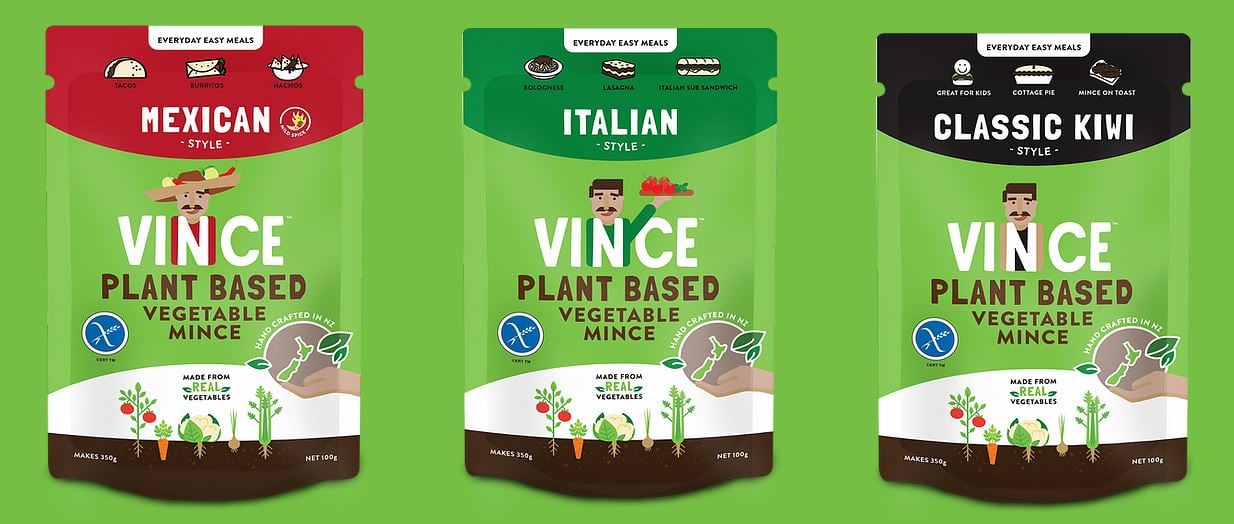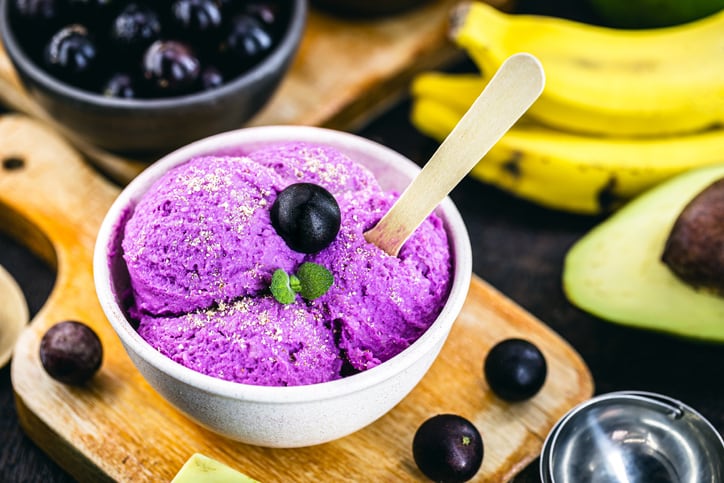Making a sea change: OmniFoods pushes plant-based versatility for localised Asian cuisines with new seafood range
Hong Kong-based plant-based meat – and now seafood – firm Omnimeat has just launched a product range with a focus on versatility to fit in with local Asian and other cuisine options, in addition to its first ambient product.
OmniFoods has made no secret of its focus on the plant-based sector in Asia, and Founder and CEO David Yeung emphasised that with this new seafood range, the versatility of the products to be used with various different types of cuisines was a key area of focus.
“Our name Omni is meant to be just that – to be designed for all types of cuisines, [and] this has been very important in this range. We have launched six different products in order to fit all cuisines,” Yeung said at the OmniSeafood launch event.
“[In particular], the Omni Classic Fillet which is the world’s first plain and unbreaded plant-based fish fillet has been designed to work with [classical] Chinese food applications such as Szechuan spicy water-cooked fish (水煮鱼) and pickled vegetable fish (酸菜鱼) [where the fish is generally boiled].
“Basically, the whole idea for this range is to be versatile, to have options for not just Western cuisine but also for all types of Asian cuisines from Oriental to Thai, to Korean, to Japanese and so on.”
Safety and security: APAC cell-based meat sector calls for more organised IP protection and governance to accelerate scale-up
The cultivated meat sector in APAC is calling for the establishment of a non-biased entity to lay down proper industry governance and IP protection to provide a safe, secure environment for firms to share knowledge and collaborate towards scale-up.
This was the consensus reached by an expert panel on scaling cultivated meat production in the Asia Pacific region which convened at the recent Cellular Agriculture: Asia Summit 2021.
The panel comprised of: Founder of cultivated meat technology firm Heuros N.J. Beaumont, Founder and Chief Executive of nanotech firm Cellivate Technologies Viknish Krishnan-Kutty, Co-Founder and CEO of cultivated red meat firm Gaia Foods Vinayaka Srinivas and Founder of cultivated meat cuts firm Ant Innovate Hanry Yu. The session was moderated by Cellular Agriculture Australia Founder and Executive Director Dr Bianca Le.
Much of the panel’s discussion was focused on IP protection as a major challenge faced by the industry today when it comes to collaborations and sharing knowledge, especially as the vast majority of firms in the cultivated meat space are still in the start-up stage.
The ‘Tesla’ of plant-based foods: Watch YouKuai Group International CEO outline China strategy
China-based plant-based company YouKuai Group International is drawing inspiration from American electric car maker and clean energy firm Tesla, as it seeks to expand the business and its influence.
Founded in 2019, the firm launched Zrou, its first brand and product which takes the form of plant-based ground pork. It currently has two B2B products (ground, mince), suitable for stir-fry and filling applications respectively, as well as four D2C products (minced, ground, lasagna, "Eight Treasure" bun) retailing online and offline.
The company’s initial focus is on B2B channels such as hotels, restaurants, resorts, schools and companies, targeting what it calls creators and early-adopters to help accelerate mainstream consumption of plant-based foods in China.
YouKuai’s founder Franklin Yao told FoodNavigator-Asia: “We believe that this (plant-based) is not a market that is going to hit its inflection point in the next three to five months, so we don't need to win this market in the next three to five months, it's maybe closer to three to five years."
Rising tides: Avant eyes retail launch of cell-based fish maw and fillet by 2025 - CEO interview
Hong Kong’s cultivated meat biotechnology firm Avant is aiming to produce its first cell-based fish maw and fillet products for consumption by late 2022, and wants products to be commonplace in supermarkets by 2025.
It first launched the cell-based fish maw prototype in 2019, and the cell-based fish fillet in 2020, and now hopes to manufacture these in a soon-to-be set up pilot plant in Singapore by late 2022. Once it receives approval from Singapore’s regulatory body, the Singapore Food Agency (SFA), Avant will initially produce for foodservice first, and target the larger retail sector sometime in 2025.
Carrie Chan, co-founder and CEO at Avant said the pilot plant will be producing premium fish maw, a culturally relevant food product in Asia, as well as fish fillet, which would cater to the Western cuisine.
‘First-mover advantage’: Asia’s first pea milk firm opts for natural flavour over dairy simulation with pioneering products
Asia’s first pea milk firm Snappea seeks to make the most of its first-mover advantage by emphasising the natural flavour of peas in its products as opposed to simulating dairy, believing that this sets it apart from other milk alternatives in the market.
Malaysia-based Snappea lays claim to being the first milk alternative made from peas in the region, and has both pros and cons that come along with it, according to Snappea Founder & Director Justin Chan.
“Being the first pea milk in Asia gives us a first-mover advantage, but this also means there is a lot of educational and awareness work to be done,” he told FoodNavigator-Asia.
“For instance, I bet probably eight out of 10 people have never heard of pea milk before, so building awareness is really important, and it’s up to us to get the word out there [as there are no preexisting players in this particular area].”





